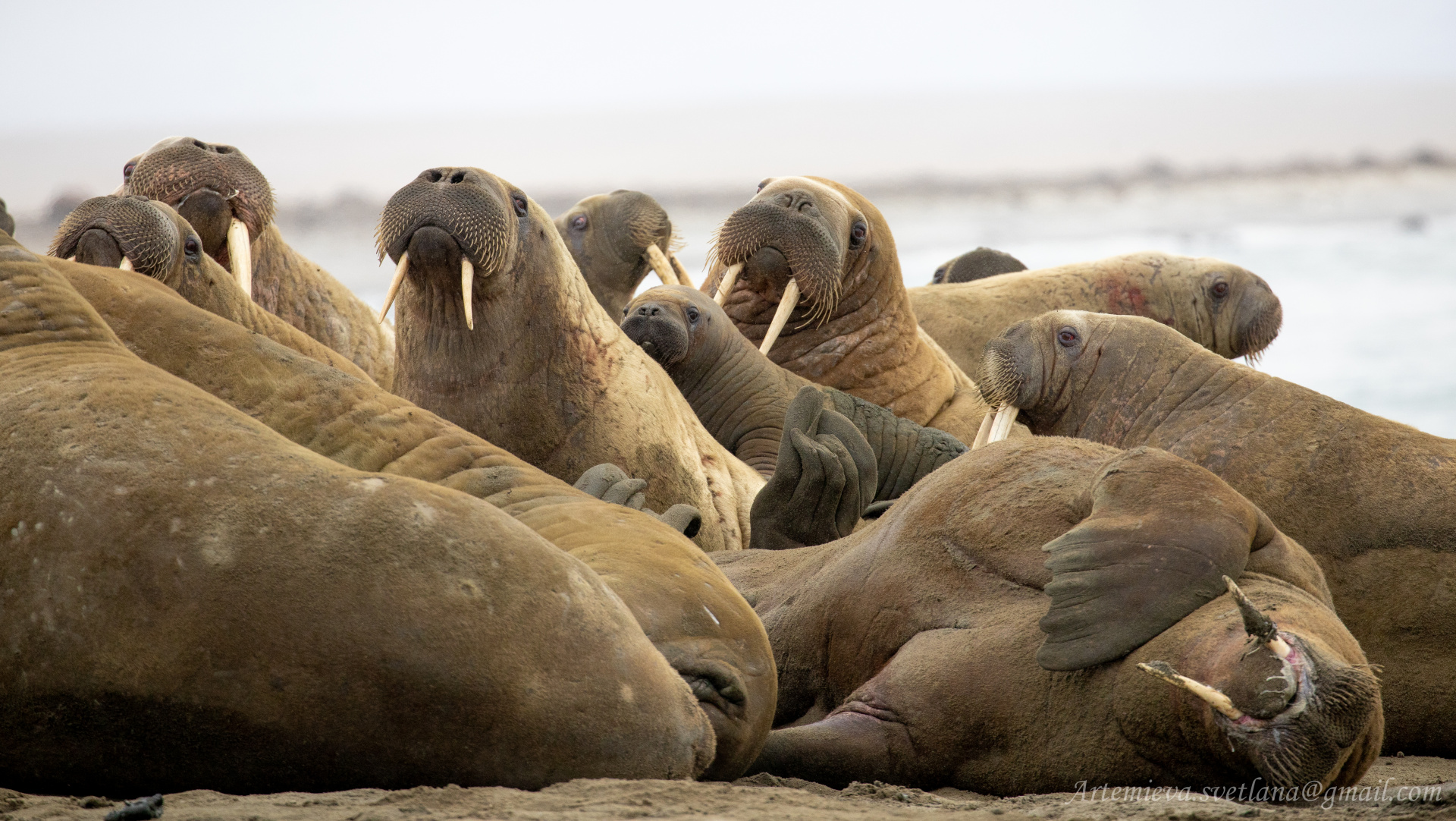
Members of the expedition "Arctic Floating University - 2022" carried out a set of research works on the Franz Josef Land archipelago, including continued observations of Atlantic walruses.
For the third year, employees of the A.N. Severtsov Institute of Ecology and Evolution of the Russian Academy of Sciences have been monitoring the grouping of the Atlantic walrus. One of their tasks is to assess the state and dynamics of the population, since it is an indicator of the sustainable state of the marine and terrestrial ecosystems of the Russian Arctic.
“It was important in such a short period of time to study several key points of the archipelago- the islands of Graham Bell, Trekhluchev, Heiss, Matilda and examine the rookeries with the help of unmanned aerial vehicles, conduct a census of sighted animals, collect samples using minimally invasive and non-invasive methods. We also managed to service 15 camera traps installed last year. This year, we were surprised by the location of the rookery at Cape Ostantsovy on Heiss Island: the walruses lay quite far from the water, among the sands, and not in their usual place,” said a researcher at the A.N. Severtsov Institute of Ecology and Evolution of the Russian Academy of Sciences, Svetlana Artemyeva, head of the team for the study of the Atlantic walrus within the framework of the Arctic Floating University program.
According to scientists' preliminary assessment, the group of walruses looks well, no sick animals were registered. Last year, more than seven thousand animals were counted directly, which is an absolute record for these places. The results of this year will be known after the analysis of all collected data.
“For the third year we have been conducting large complex expeditions that bring data on the study of marine mammals living in protected areas. The territory of the national park is optimal for research of this kind, since a large group of Atlantic walrus is regularly detected here. We finally learned about all the rookeries that are available in the "Russian Arctic" and their condition. Now we are assessing the condition of the animals,” said Alexander Kirilov, director of the Russian Arctic National Park.
Related materials:
Regnum: "Scientists were surprised by the Atlantic walrus rookery on Franz Josef Land"
Iluki: "Scientists got more information about Arctic walruses"
Naryana Vynder: "Our mustachioed neighbors"
Go Arctic: "Arctic oil and gas: what's going on?"
